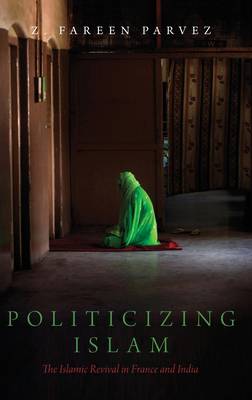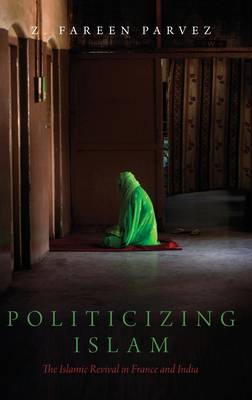
Door een staking bij bpost kan je online bestelling op dit moment iets langer onderweg zijn dan voorzien. Dringend iets nodig? Onze winkels ontvangen jou met open armen!
- Afhalen na 1 uur in een winkel met voorraad
- Gratis thuislevering in België vanaf € 30
- Ruim aanbod met 7 miljoen producten
Door een staking bij bpost kan je online bestelling op dit moment iets langer onderweg zijn dan voorzien. Dringend iets nodig? Onze winkels ontvangen jou met open armen!
- Afhalen na 1 uur in een winkel met voorraad
- Gratis thuislevering in België vanaf € 30
- Ruim aanbod met 7 miljoen producten
Zoeken
Omschrijving
Home to the largest Muslim minorities in Western Europe and Asia, France and India are both grappling with crises of secularism. In Politicizing Islam, Fareen Parvez offers an in-depth look at how Muslims have responded to these crises, focusing on Islamic revival movements in the French city of Lyon and the Indian city of Hyderabad. Presenting a novel comparative view of middle-class and poor Muslims in both cities, Parvez illuminates how Muslims from every social class are denigrated but struggle in different ways to improve their lives and make claims on the state. In Hyderabad's slums, Muslims have created vibrant political communities, while in Lyon's banlieues they have retreated into the private sphere. Politicizing Islam elegantly explains how these divergent reactions originated in India's flexible secularism and France's militant secularism and in specific patterns of Muslim class relations in both cities. This fine-grained ethnography pushes beyond stereotypes and has consequences for burning public debates over Islam, feminism, and secular democracy.
Specificaties
Betrokkenen
- Auteur(s):
- Uitgeverij:
Inhoud
- Aantal bladzijden:
- 286
- Taal:
- Engels
- Reeks:
Eigenschappen
- Productcode (EAN):
- 9780190225247
- Verschijningsdatum:
- 10/02/2017
- Uitvoering:
- Hardcover
- Formaat:
- Genaaid
- Afmetingen:
- 157 mm x 236 mm
- Gewicht:
- 589 g

Alleen bij Standaard Boekhandel
+ 418 punten op je klantenkaart van Standaard Boekhandel
Beoordelingen
We publiceren alleen reviews die voldoen aan de voorwaarden voor reviews. Bekijk onze voorwaarden voor reviews.











